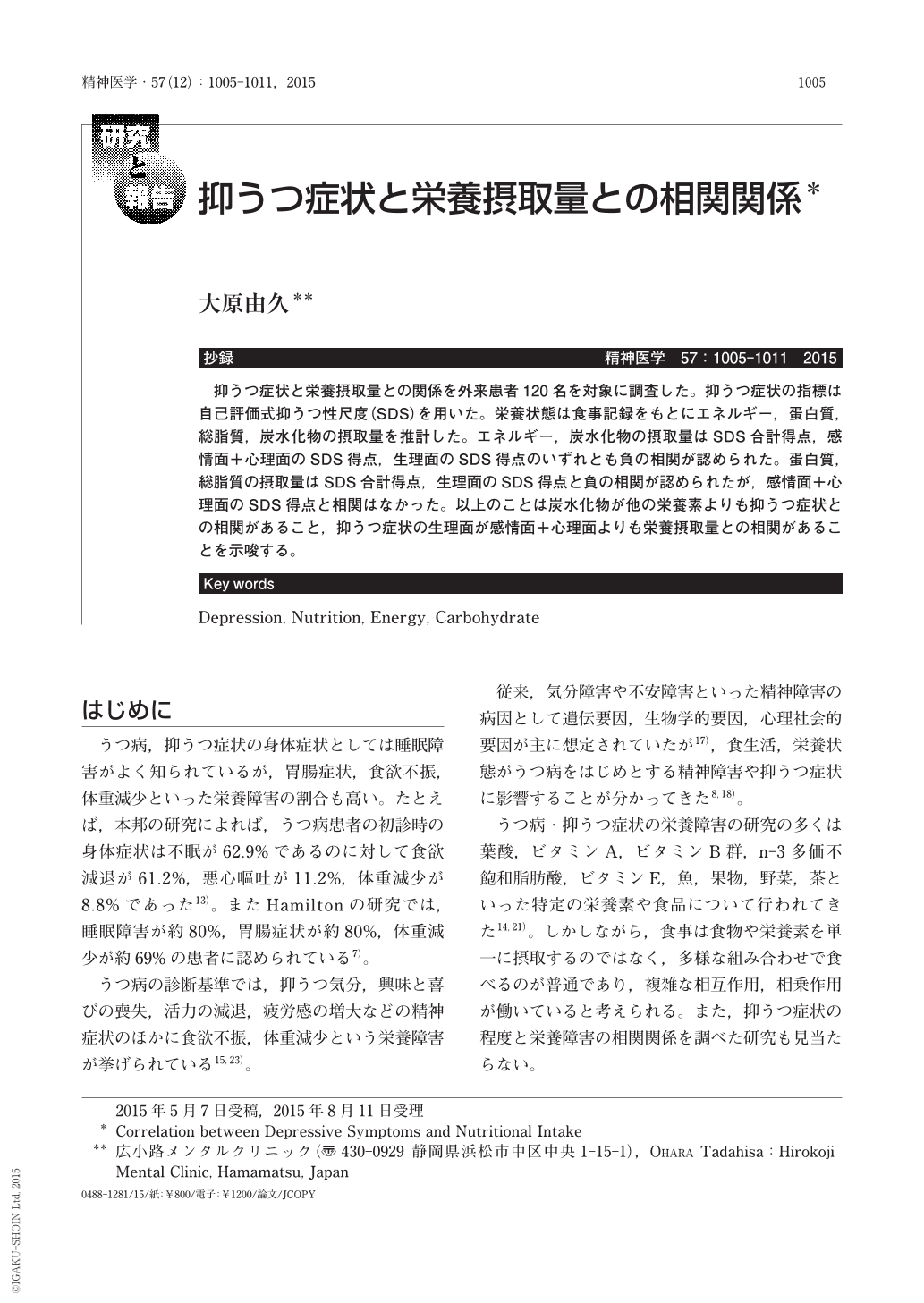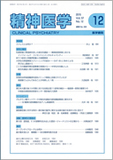Japanese
English
- 有料閲覧
- Abstract 文献概要
- 1ページ目 Look Inside
- 参考文献 Reference
抄録
抑うつ症状と栄養摂取量との関係を外来患者120名を対象に調査した。抑うつ症状の指標は自己評価式抑うつ性尺度(SDS)を用いた。栄養状態は食事記録をもとにエネルギー,蛋白質,総脂質,炭水化物の摂取量を推計した。エネルギー,炭水化物の摂取量はSDS合計得点,感情面+心理面のSDS得点,生理面のSDS得点のいずれとも負の相関が認められた。蛋白質,総脂質の摂取量はSDS合計得点,生理面のSDS得点と負の相関が認められたが,感情面+心理面のSDS得点と相関はなかった。以上のことは炭水化物が他の栄養素よりも抑うつ症状との相関があること,抑うつ症状の生理面が感情面+心理面よりも栄養摂取量との相関があることを示唆する。
Background:Studies on nutrition and depression have focused on dietary patterns and specific foods and nutrients.
Aim:To examine the relationship between depressive symptoms and energy intake.
Method:One hundred and twenty patients with mental disorders were assessed for depressive tendencies with the Zung Self-rating Depression Scale (SDS). Energy intake was determined using a brief self-administered diet history questionnaire. The relative proportion of energy intake from different sources was determined, and a standardized energy intake was obtained for each patient.
Results:Energy and carbohydrate intake were inversely correlated with the total SDS score, the “emotional and psychological” SDS scores, and the “physical” SDS score. Protein and total lipid intake were inversely correlated with the total SDS score and the “physical” SDS score, but not the “emotional and psychological” SDS scores.
Conclusion:The “physical” depressive symptom is more strongly correlated with nutrition than the “emotional and psychological” depressive symptoms are. Carbohydrate intake is more strongly correlated with depression than protein and total lipid intake are.

Copyright © 2015, Igaku-Shoin Ltd. All rights reserved.


